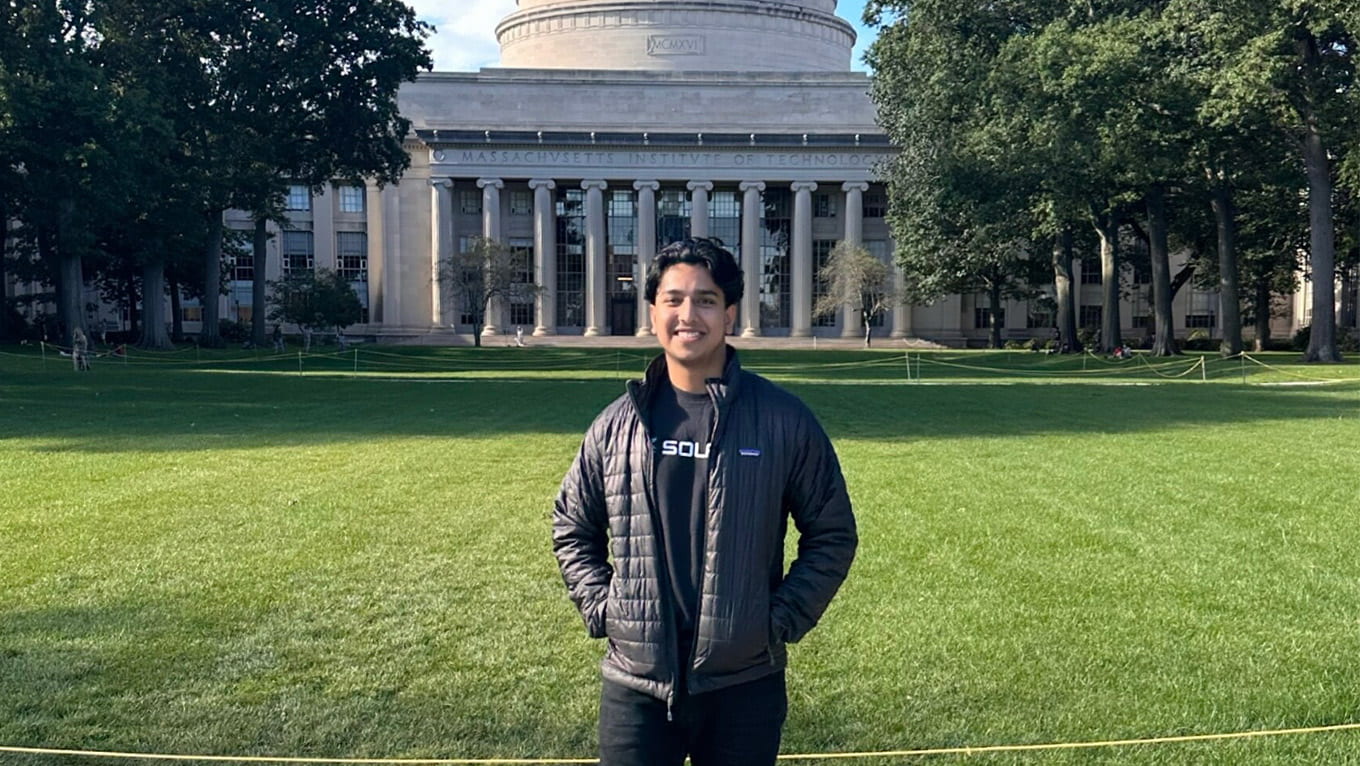Ishaan Bansal, a second-year computer science and engineering student at UC Santa Cruz, won first place in the Interactive Media track at HackMIT, an annual student-run hackathon held in the fall at the Massachusetts Institute of Technology. Bansal worked with UC Davis student Ashwin Chembu and UC Berkeley student Snehaa Kumar during this weekend-long event that brings together thousands of students to work on software and hardware projects.
Bansal and his project team were recognized for their development of a software tool for biometric multi-factor authentication, which they call Echo. This technology uses facial features, a thumbprint, or other biometric characteristics that can be read by a phone or computer as a method of verifying a person’s identity and creates a record for their internet usage for safety and tracking.
Each time a person logs in to an online account, Echo creates a non-fungible token (NFT) of that login that acts as a record of past online activity. This can be used to ensure safe practices and creates a history of a person’s internet usage.
Potential applications of Echo include confirming identity to login into a Zoom meeting, picking up a food order, or confirming driver and passenger details for an Uber ride.
The project team imagines that a user would be able to view an interactive dashboard of their internet history over years with a gamified interface. This element is what brought Echo into the Interactive Media track at the event.
For Bansal, HackMIT was an opportunity to explore his interests at the intersection of entrepreneurship and technology.
“I wanted to attend the hackathon to network and build projects. I have lots of ideas that I come up with but never have the time to build out,” Bansal said. “These hackathons are weekend events that give me the time to build them out while meeting cool people and connecting with mentors.”
Placing first in the Interactive Media track earned the project team an invitation to the Solana Breakpoint 2023 conference in Amsterdam at the end of October, a conference for developers, artists, content creators, and students who use the Solana blockchain platform. The team will also compete in the Overdrive hackathon, which is focused on Web 3 technology, before the Solana conference. The team is interested in finding collaborators in both industry and academia.




